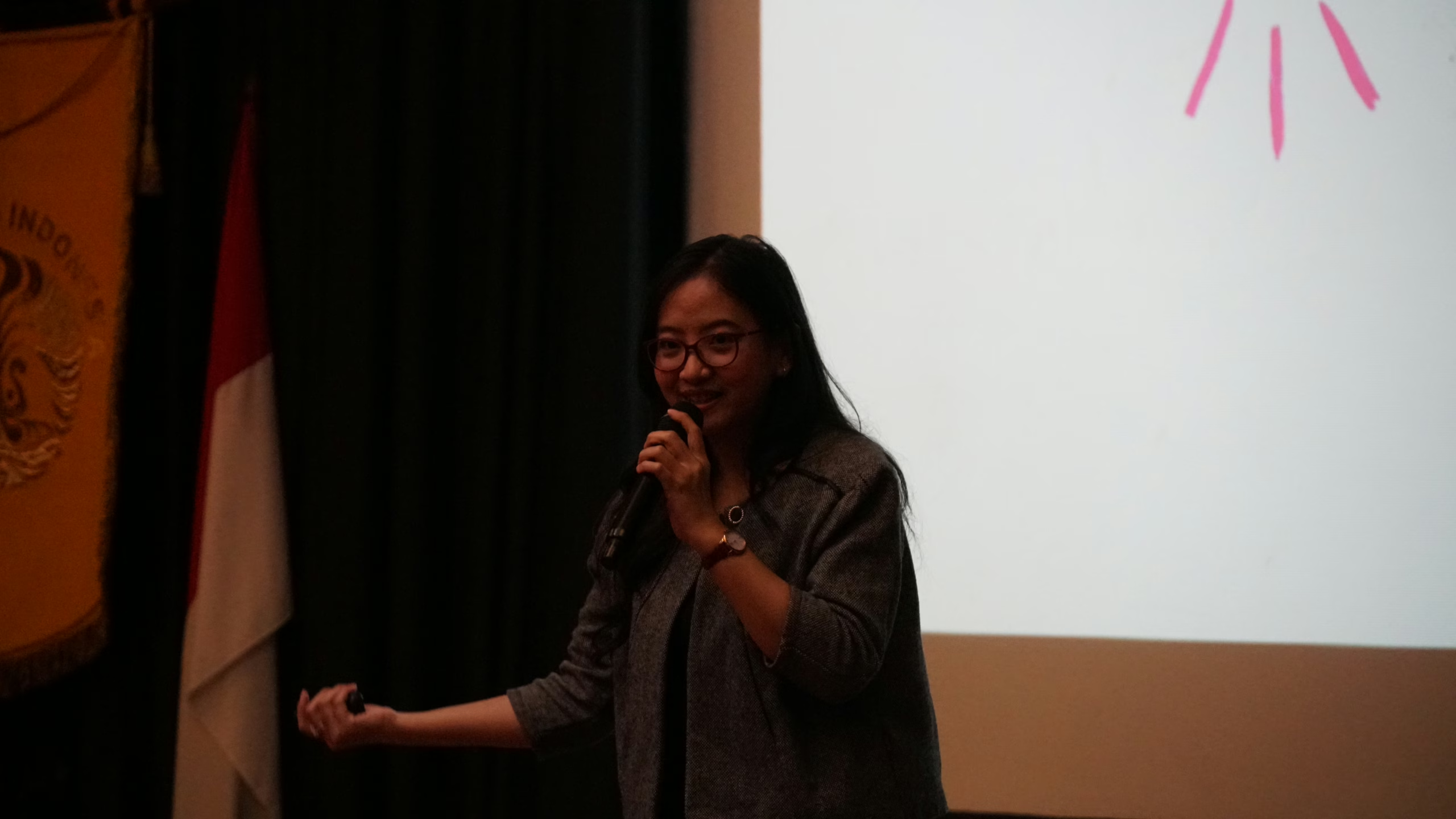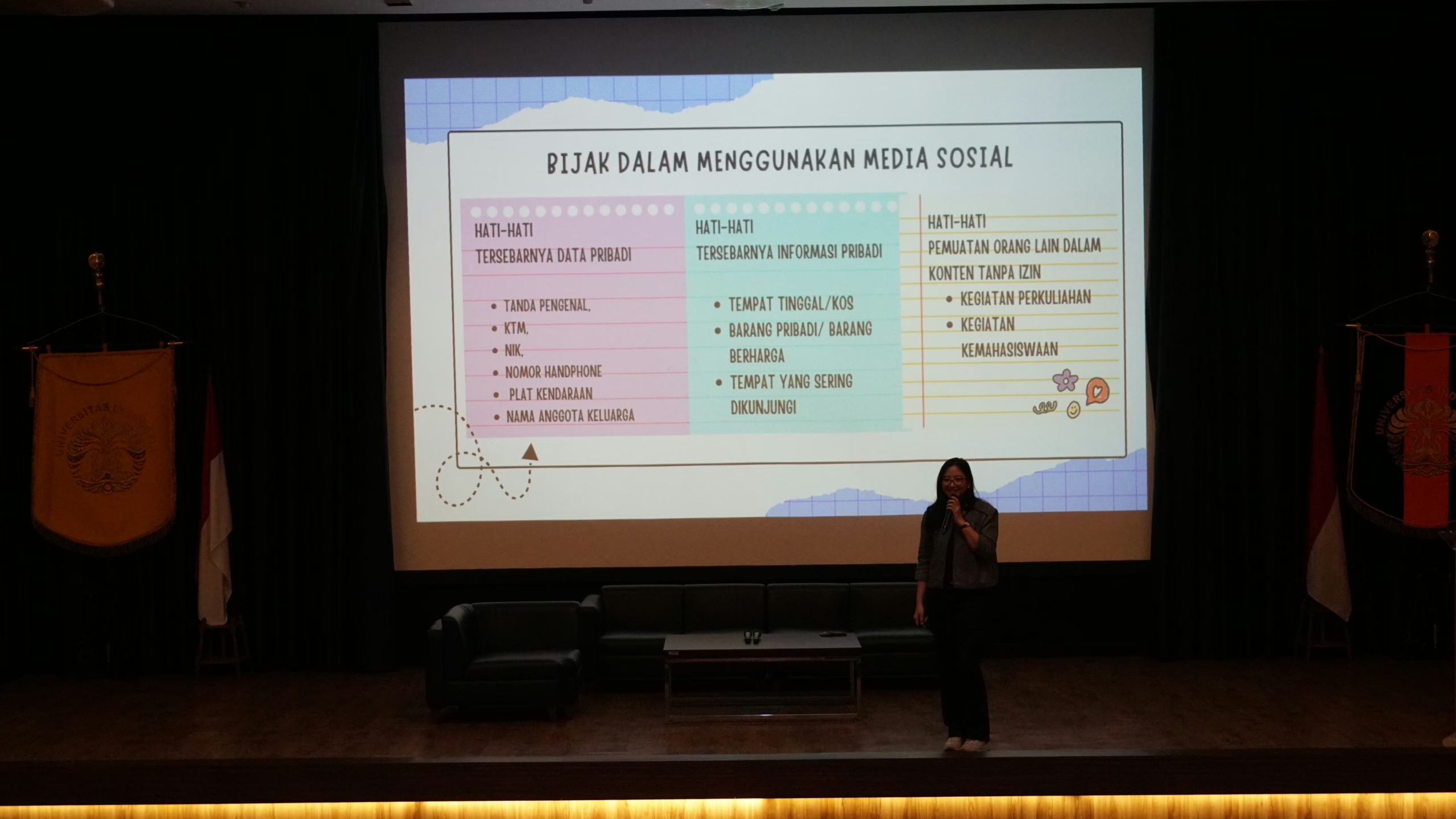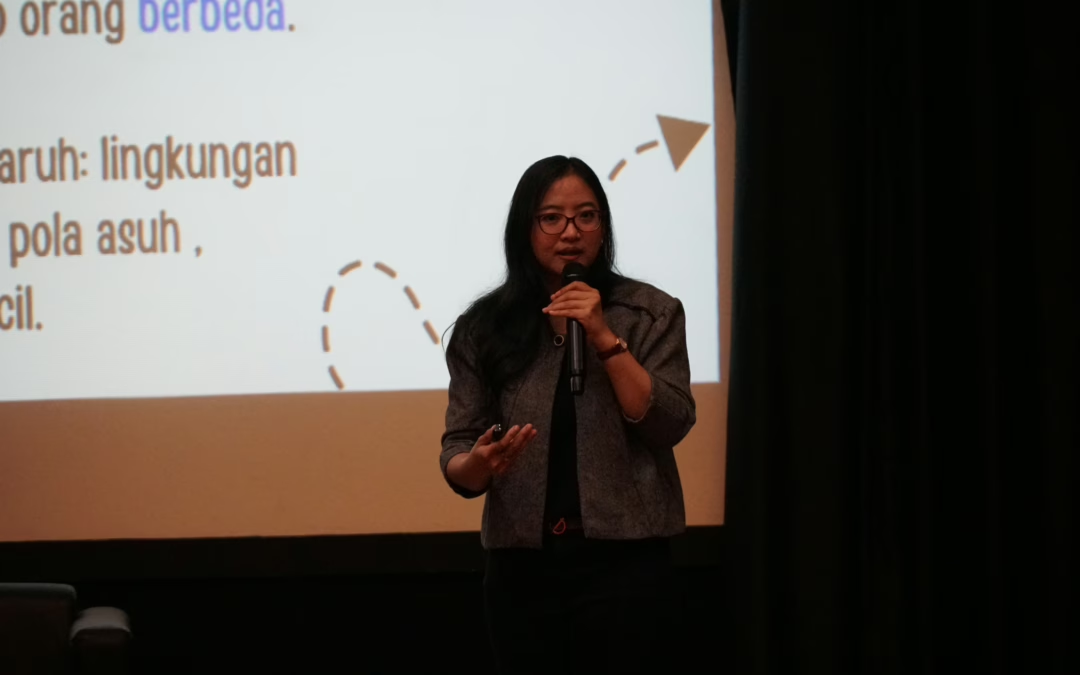Depok-As part of the 2025 Training of Trainers (ToT) program, the Universitas Indonesia (UI) Vocational Education Program held a training session entitled “Media Publication & Wise Social Media” delivered by Chysanti Arumsari, M.A., UI English Lecturer and Head of Public Relations and Protocol of the Faculty of Cultural Sciences, Universitas Indonesia, on July 16, 2025. This training is part of an effort to equip students and academics with practical knowledge regarding ethical and effective public communication. This activity also supports the achievement of the Sustainable Development Goals (SDGs), especially point 4 (Quality Education) and point 16 (Peace, Justice, and Strong Institutions). This initiative is expected to strengthen the capacity of the younger generation in understanding and implementing responsible communication in the digital era, while strengthening inclusive and transparent information governance in higher education environments.
The material presented covered four main topics: an introduction to public communication, media publications, social media ethics, and press release writing. In the session, Chysa emphasized the importance of managing information carefully, especially in the digital age, which is rife with unverifiable data and opinions.
“Media publications today are not just about conveying information, but also about maintaining the credibility of institutions and building a positive image,” explained Chysa. She noted that social media plays a strategic role as a promotional and communication channel, given Indonesia’s high internet penetration, which is projected to reach 221 million users by 2024, dominated by millennials and Gen Z.
 (Photo: Chysa invites students to reflect on how they currently use social media)
(Photo: Chysa invites students to reflect on how they currently use social media)
According to data from the Indonesian Internet Service Providers Association (APJII), the most popular social media platform among Gen Z is Instagram (51.9%), while millennials still rely on Facebook (74.09%). However, this high level of digital activity also carries risks, including the dissemination of personal data, sensitive information, and unauthorized content.
Chysa also highlighted the phenomenon of an “empathy crisis” on social media. “Our fingers are often faster than our empathy. We need to be careful about sharing content, maintaining the good reputation of individuals and institutions, and avoiding oversharing and being tempted by viral trends without considering the impact,” Chysa explained.
Some principles to adhere to when using social media include: 1) publishing useful and positive content; 2) protecting your personal and alma mater reputation; 3) prioritizing empathy in every post; 4) being wary of false sense of security online; 5) controlling the urge to share personal information; 6) avoiding the pressure to always follow trends; and 7) not everything has to go viral.
Chysa also emphasized the importance of digital communication ethics in an organizational context. In a crisis, for example, academics are not permitted to unilaterally issue public statements without coordination with UI Vocational. All information releases should refer to the institution’s official channels.
 (Photo: Chysa explains to students to be wise in using social media)
(Photo: Chysa explains to students to be wise in using social media)
In addition, the student training participants were also introduced to the principles of press release writing. Press releases should be newsworthy, include relevant photos, and follow a publication flow consistent with campus regulations. Not all incidents require an official statement, except for major events such as disasters or condolences.
One of the participants, Alya Sevira Ananda, said the activity had many benefits. “This training has opened my eyes to the importance of maintaining ethics and empathy on social media. I’ve come to understand more deeply that every post can have a significant impact, not only on myself but also on the institution,” Alya said.
Finally, Chysa advised the students, “Learn to write information well and realize that digital footprints don’t disappear easily. Therefore, empathy must always be prioritized.” Through this activity, UI Vocational hopes that all participants will develop public communication skills that are not only effective but also responsible, both in the real world and online.


